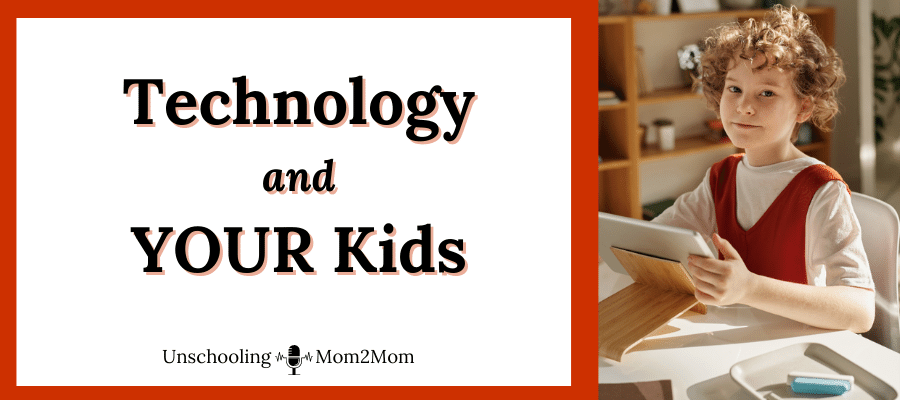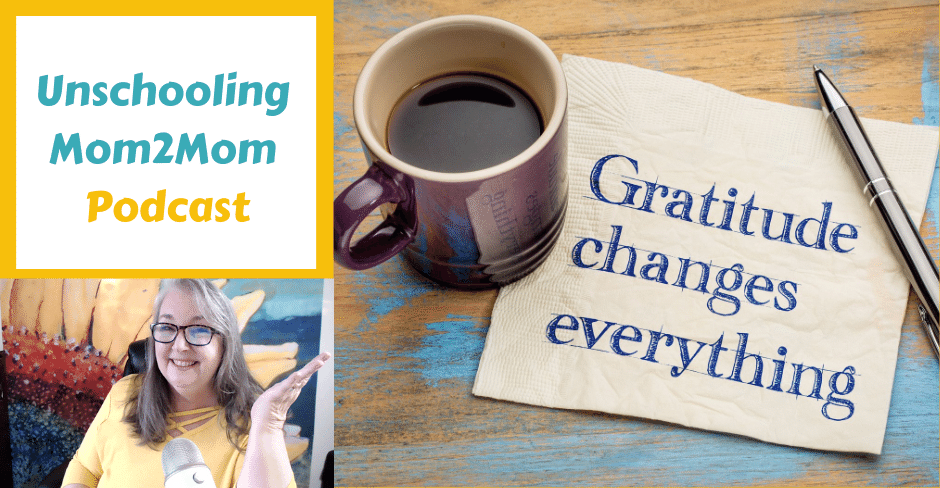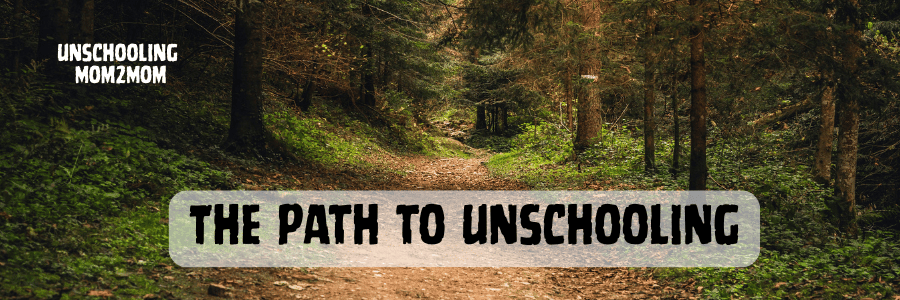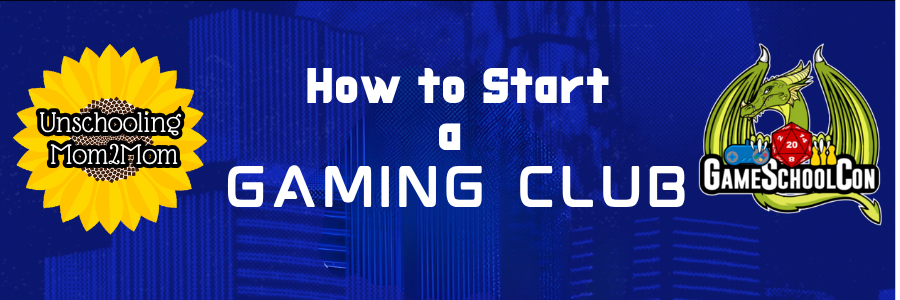Technology and Your Kids
Parents have been inundated with frightening stories about their kids' use of technology. Since it's a relatively new tool for most of us - and because none of us received the Perfect Parenting Manual for how to parent our kids in this day and age... no wonder we're a little nervous. We're all told - in a variety of ways -that The Right Parenting Choice is to
"clamp down" on our kids' phone, tablet, and desktop use.
This week, we're focusing a little more on Technology... since that seems to be a major hurdle for families.
Most of us didn't grow up with this much technology, so we're a little untethered here, drifting whatever way the currents are going. And there’s a lot of fear out there. Fear sells.
But did you know that every time society has a shift - even back to the days of Aristotle - the mainstream powers-that-be resist. And then they talk everyone else into resisting. At least at first. Until the world begins to see that progress often makes our lives BETTER. So we often acquiesce. We may even feel a little ashamed. Maybe you hide how much your kids are on their devices. (Society has a way of leveraging that on us, doesn't it?)
Did you know that when books came out, people were cautioned that it would give everyone "bad ideas?"
When writing was invented, people were warned that it could make conversations obsolete.
Irreversible shock would come to those riding steam engines through tunnels.
The telephone was going to electrocute us.
Microwaves were going to give us cancer.
The list goes on and on.
Society does not embrace "The New" very easily!
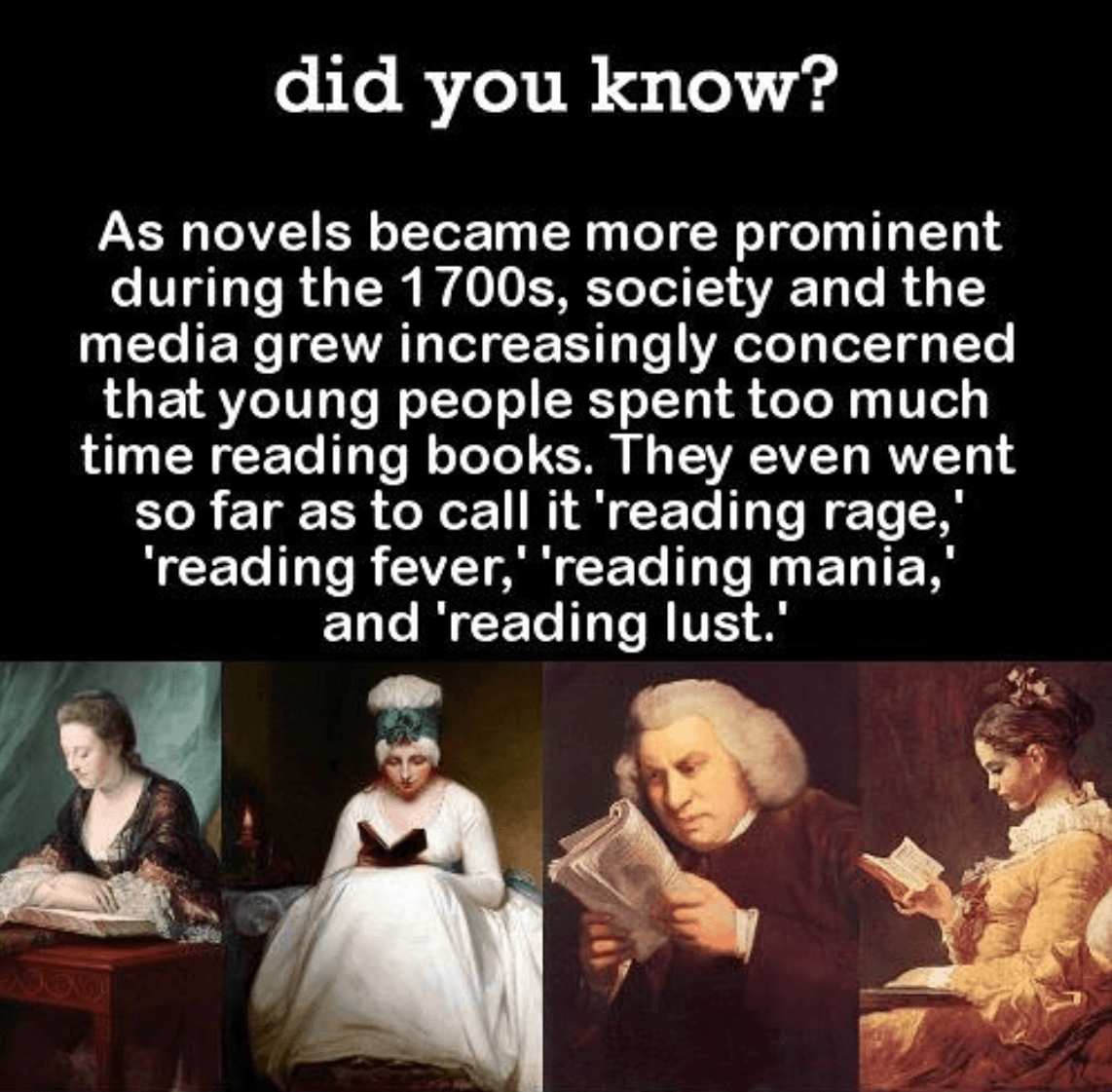
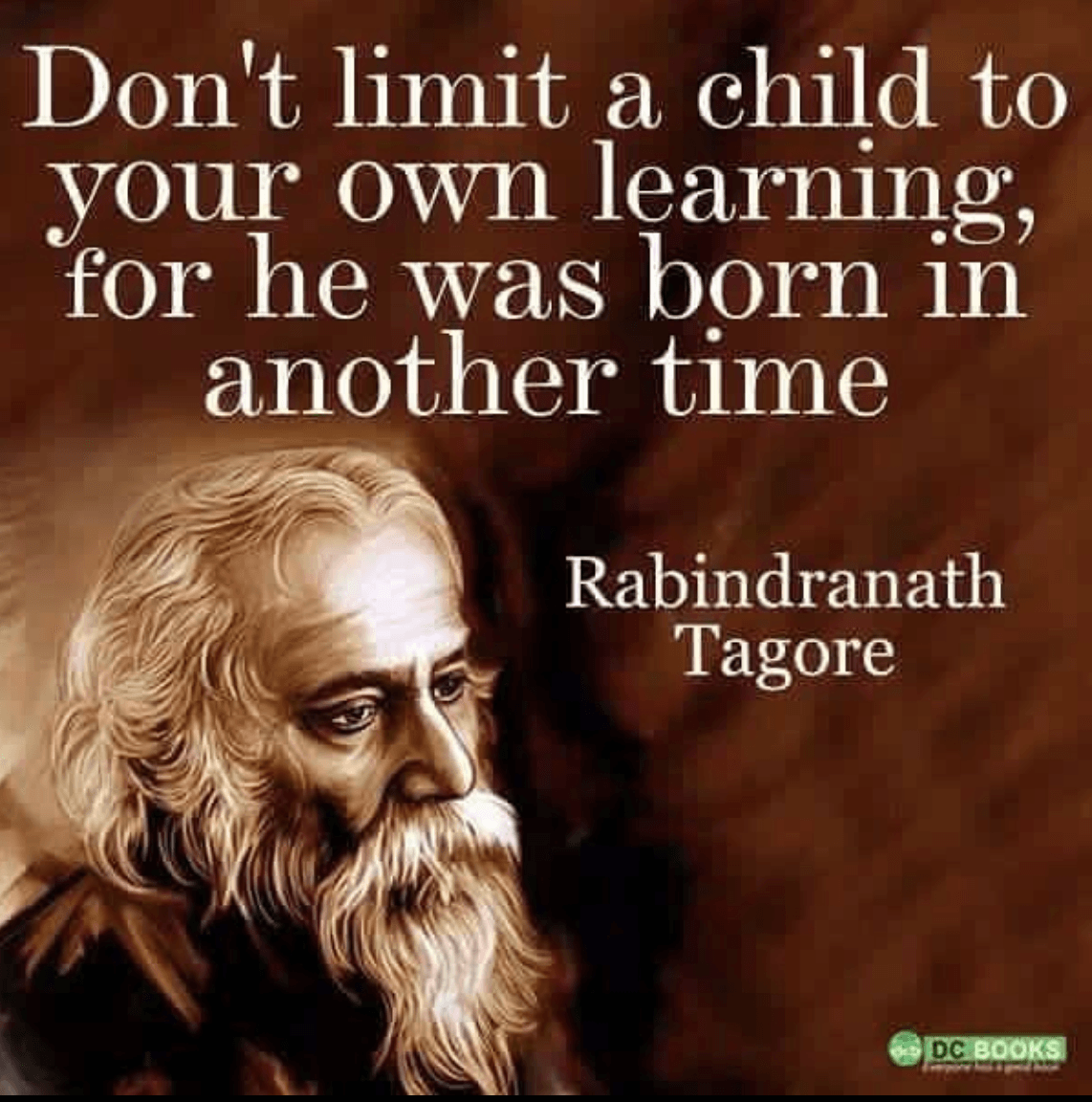
Then add to that, another common tune: the fear, mistrust, and downright disappointment every generation has in their youth.
Read the book, Bad for You: Exposing the War on Fun
A quick skimming of social media will inevitably produce a few “kids these days…” threads.
Everywhere you turn, you'll see parents shaking their heads about teens on their phones. Interestingly, the bonding that happens between adults lamenting about their kids’ use of technology often occurs while adults are communicating on technology themselves!!
So let’s bring unschooling principles into this equation.
Above everything else, unschooling parents prioritize their relationship with their kids. That part doesn’t change - even as our kids are getting older and moving into adolescence. Embracing their interests and passions offer so many advantages - and that applies to technology too.
Look at some key points through an unschooling lens:
🌻 Embrace what is - don't hang onto a story in your head of how you wish the world to be. Technology is here to stay. We will not be putting that genie back into the bottle!
🌻 When we're fearful, we're lacking trust. Parents often say, "I trust my kids, I just don't trust the world out there!" But that's where our teens live. Let's help them figure out how to navigate tricky situations with us by their side - or at least there as their safety net.
🌻 You may hear unschoolers say "no screen limits." But what is meant is no arbitrary screen limits. No pre-determined number of hours or designated times of day for computer access. Life brings limitations. Unschooling families create relationships where partnering and communicating is prioritized. This makes it easier to see what REAL limitations would be helpful - as opposed to random decisions that don't take into account the nuances and preferences of your child or family. Unschooling is about individualizing our lives - not making decisions based upon the opinions of the "the public at large."
When we put limits on... anything really, we make it more desirable. It’s
the theory of the Forbidden Fruit. When we lean in to learn more about what they’re doing, it helps us trust them a little more. When we HAVE HAD limits, we can expect them to hold on tightly and not want to let go! They’re afraid we’re going to change our minds! So they want to play while they can -or whatever it was that they feel they were deprived of. Only when we step away from controlling it, can they get the opportunity to actually see when they’ve had enough or might want to do something else. When we put external limits on them, their internal motivation never gets the opportunities to grow and strengthen.
We, as parents, have most likely been raised with a LOT of external limits and rules from adults when we were growing up. We may have internalized that way of interacting with children. Unschoolers want to shift away from that parenting style that revolves around control (and fear.)
Remember the John Holt quote:
"To trust children we must first learn to trust ourselves…
and most of us were taught as children that we could not be trusted."
🌻 All of this may mean YOU have to learn more to catch up with your children. It’s not fair to ask them to stop exploring and learning new technologies just because we don’t feel like doing the same. But if we're going to meet them where they are... well, that's where they are.
🌻 Technology is just a tool that makes accessing information so much easier. And way more than they'd ever have access to in their own towns or the books you happen to have at your house. The world truly IS at their fingertips. Unschoolers want to allow our kids to expand their world, not keep it small.
Screentime
One last thing… let's talk about the term,
"Screentime." It's always used in such a negative way - no wonder kids feel irritable when parents mention it.
No one says,
"Hey, let's get a little more screentime!"
That wouldn't even make sense!
Sweeping with such a broad brush makes it easy to be dismissive. Instead, if parents can lean toward the reasons our kids and teens are using technology, they'll be better informed. And that information will help you decrease your fear, value what your teen is valuing, and learn more about your teen's preferences and interests.
After all, that's how unschooling works best - meeting the child/teen where they are, and expanding out from there!
Function Over Fear
So if we focus on the FUNCTION of that electronic device, you may be able to see its value:
- Making plans
- Using the calendar
- Checking the weather
- Counting their steps
- Learning about Current Events
- Researching "How-to's"
All good things…Right?
They’re also learning more about the technology itself:
- how technology works,
- making videos,
- editing photos,
- developing graphic design skills
They’re learning about their resources and how to research by asking questions & finding answers, even following story lines in movies and games and music.
They’re learning more about themselves with quizzes and information that comes from that.
They’re developing all sorts of Skill Sets
- spatial abilities
- strategic thinking
- technical skills of all sorts
- topic-related based on interests
- critical thinking
Maybe they’re using their devices the way YOU do
… Keeping in touch with friends
…Exploring interesting topics through TED Talks & YouTube
…Listening to music
…Dreaming Big
…Distracting from a Bad Day
Engaging with them THROUGH their technology offers the perfect opportunity to get in the habit of sharing funny or interesting “discoveries” with each other!
More connection between you and your kids - take it from unschoolers, that’s a good thing.
Playing on tablets, phones, and desktops offer so many opportunities to learn - even though it may not look that way at first glance. Maybe it's time to show an interest in what they ARE doing. You might be surprised at how much knowledge they've accumulated.
Unschooling Guide: Technology
The 25-page full-color magazine-style PDF will help you dive a little deeper in this concept of embracing technology.
Society resists everything that's new - and we've absorbed a lot of the messaging against technology. Learn more about what that means so you can hop off the mainstream anti-kid conveyor belt, and do what's best for your family.
This Guide will help you!


